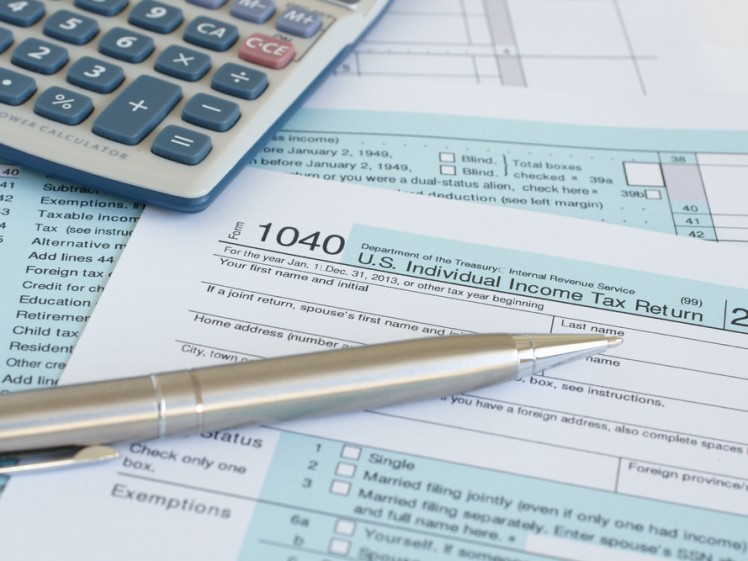This post was written by Hugo Lesser.
 Tax season is here once again, and for American expats this means not just filing form 1040, but quite possibly other forms as well. The US is the only major nation that taxes based on citizenship instead of residence, so for US citizens and green card holders, wherever you are living or earning in the world, you have to pay income tax to the federal government on your worldwide income.
Tax season is here once again, and for American expats this means not just filing form 1040, but quite possibly other forms as well. The US is the only major nation that taxes based on citizenship instead of residence, so for US citizens and green card holders, wherever you are living or earning in the world, you have to pay income tax to the federal government on your worldwide income.
Seeing as you’ll probably pay tax on your foreign-earned income in your country of residence too, this means you run the risk of being taxed twice on the same income. Thankfully though, there are some programs and exceptions designed to prevent this.
Even if you don’t owe any tax to the IRS, you still have to file. Read on to discover our top tax tips to help you to eradicate or minimise your US federal income tax bill this year.
1. Don’t try to hide
There are millions more Americans living abroad than the number of them filing tax returns. The several million expats currently not filing either don’t know that they should be filing, or they think that being abroad they can remain under the IRS’ radar. They are all in for a rude awakening though.
In 2014, thanks to the FATCA law, the IRS began compelling foreign banks to hand over account info of their US account holders. As such, the IRS knows about any income US expats were paid into foreign bank accounts in 2015. If their tax return doesn’t match this info, or if they didn’t file a return, a polite but potentially shocking letter will probably wend its way to them.
Thankfully, if you’ve been living abroad but didn’t know you had to file before now, there’s a program called the IRS Streamlined Procedure that allows you to start filing without incurring any penalties for previous non-compliance. To qualify, you need to file your last three returns along with your last six FBARS (more about which later), and also self-certify that you weren’t previously wilfully avoiding paying tax.
2. Find out your obligations
The first step when planning to file is to understand what you have to do and by when.
If you earn a minimum of $10,000 anywhere in the world, you have to file a form 1040. Any tax due still needs to be paid by April 15th, however expats get an automatic filing extension to June 15th, and you can extend this still further to October 15th.
Expats with overseas assets (including a home) worth over $200,000 also have to fill in and submit form 8938 with their return.
Furthermore, Americans who had at least $10,000 in total in one or more foreign financial accounts at any time during the tax year also have to declare their overseas accounts on FinCEN form 114, also known as an FBAR (Foreign Bank Account Report). The deadline for FBARs is June 30th, however from next year it will have the same filing deadlines as form 1040.
3. Plan your exclusions
The two primary ways of avoiding double taxation on foreign earned income are the Foreign Earned Income Exclusion (FEIE) and the Foreign Tax Credit programmes.
The FEIE lets you exclude the first $100,800 of foreign-earned income from US tax. Once you claim the FEIE, you have to continue claiming it in following years until you let the IRS know you no longer want to. Having done this, you can’t claim it again for five years.
The Foreign Tax Credit allows you to claim a one dollar tax credit for every dollar of tax you’ve paid in your country of residence on the same foreign-earned income.
It’s possible to use both at once, claiming tax credits for income over the FEIE limit, however if you live in a country with higher income tax rates than in the US, it usually makes more sense to solely claim the Foreign Tax Credit, as you can claim more credits than the US tax you actually owe, and then carry the excess credits forward for future use.
There are other exemptions, notably the Foreign Housing Exclusion, which allows you to exclude housing expenses such as rent and utilities, and the Child Tax Credit. As of 2015 though, you can’t claim the Child Tax Credit as well as the FEIE.
4. Gather your paperwork
Whether you’re filing your return yourself or with the help of an expat tax specialist, it’s worth gathering all your paperwork together from the off. If you filed last year, you’ll just need:
- Last year’s return
- Statements showing your 2015 income
- Statements showing any foreign tax paid on your 2015 income
- Foreign account financial statements for 2015 (for your FBAR)
If you haven’t filed previously but you are now ready to start, you’ll need:
- Your income and foreign tax statements for the last three years
- Foreign account financial statements for the last six years (for your FBARs).
5. Other tips
If you’re married to a foreigner, file separately
If your spouse isn’t a US citizen or green card holder, you can elect to file as ‘married filing separately’ on your form 1040, preventing your spouse from having to file a federal return and pay US taxes.
Request an extension if you haven’t been living abroad for a whole year
If you’ve been living abroad for less than a whole year, make sure that you request the additional filing extension until October 15th, if this allows you to complete a full year abroad and so qualify for the FEIE or Foreign Tax Credit.
If in doubt, consult a professional
Tax filing for expats is, generally speaking, more complex than it is for people living in the US. The penalties can be steeper too, so if you aren’t 100% sure about anything, get in touch with a US expat tax expert for advice specific to your particular situation.
"ExpatGo welcomes and encourages comments, input, and divergent opinions. However, we kindly request that you use suitable language in your comments, and refrain from any sort of personal attack, hate speech, or disparaging rhetoric. Comments not in line with this are subject to removal from the site. "




















